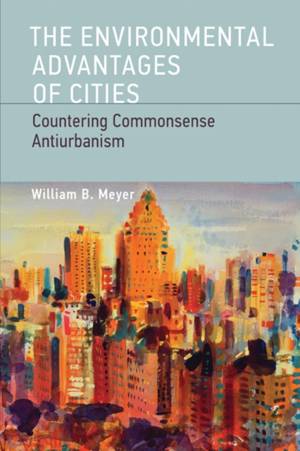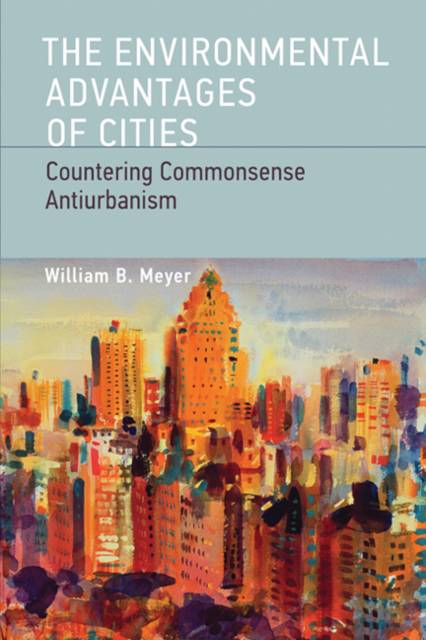
- Retrait gratuit dans votre magasin Club
- 7.000.000 titres dans notre catalogue
- Payer en toute sécurité
- Toujours un magasin près de chez vous
- Retrait gratuit dans votre magasin Club
- 7.000.0000 titres dans notre catalogue
- Payer en toute sécurité
- Toujours un magasin près de chez vous
Description
Conventional wisdom about the environmental impact of cities holds that urbanization and environmental quality are necessarily at odds. Cities are seen to be sites of ecological disruption, consuming a disproportionate share of natural resources, producing high levels of pollution, and concentrating harmful emissions precisely where the population is most concentrated. Cities appear to be particularly vulnerable to natural disasters, to be inherently at risk from outbreaks of infectious diseases, and even to offer dysfunctional and unnatural settings for human life. In this book, William Meyer tests these widely held beliefs against the evidence.
Borrowing some useful terminology from the public health literature, Meyer weighs instances of "urban penalty" against those of "urban advantage." He finds that many supposed urban environmental penalties are illusory, based on commonsense preconceptions and not on solid evidence. In fact, greater degrees of "urbanness" often offer advantages rather than penalties. The characteristic compactness of cities, for example, lessens the pressure on ecological systems and enables resource consumption to be more efficient. On the whole, Meyer reports, cities offer greater safety from environmental hazards (geophysical, technological, and biological) than more dispersed settlement does. In fact, the city-defining characteristics widely supposed to result in environmental penalties do much to account for cities' environmental advantages.
As of 2008 (according to U.N. statistics), more people live in cities than in rural areas. Meyer's analysis clarifies the effects of such a profound shift, covering a full range of environmental issues in urban settings.
Spécifications
Parties prenantes
- Auteur(s) :
- Editeur:
Contenu
- Nombre de pages :
- 248
- Langue:
- Anglais
- Collection :
Caractéristiques
- EAN:
- 9780262518468
- Date de parution :
- 15-03-13
- Format:
- Livre broché
- Format numérique:
- Trade paperback (VS)
- Dimensions :
- 152 mm x 229 mm
- Poids :
- 340 g

Les avis
Nous publions uniquement les avis qui respectent les conditions requises. Consultez nos conditions pour les avis.






